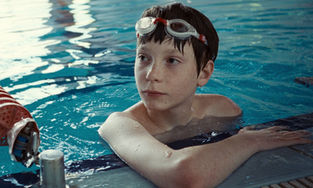TIFF 2021: 'Drive My Car', 'The Guilty' | Hamaguchi Ryūsuke, Jake Gyllenhaal | Capsule Reviews
- S.J.

- Sep 20, 2021
- 3 min read
Updated: Nov 3, 2023

DRIVE MY CAR
You will not drift in my Tokyo, you will simply just Drive My Car (ドライブ・マイ・カー in Japanese). Or you won't actually because the main character already has an assigned driver but surely you get the point. Directed and co-written by Hamaguchi Ryūsuke, the film adapts a short story by Murakami Haruki of the same name, dropping us first to lives of theatre director Yūsuke (Nishijima Hidetoshi) and writer Oto (Kirishima Reika). They are a couple who also share a successful artistic collaboration as well as a layered past that the movie doesn't get into, until one fateful evening when Oto passes away, leaving Yūsuke with unanswered questions about her and their relationship. Second part of the film finds Yūsuke two years later, getting a new directing job that comes with an assigned driver Misaki (Miura Tōko). During this time with the play and being a passenger for once, Yūsuke starts unravelling the past.
You can make all the jokes you want with a combination of the phrase ''adaptation of a short story'' and the three-hour runtime you discover, and as many of them can have a point, it won't paint the whole picture. First of all, the unravelling of the past is both ambitious and rewarding which is commendable because the material definitely won't take the viewer for a fool. A road movie of sorts, Drive My Car takes some overlong routes at times that have some meandering going on (unfortunately with Misaki and Oto, main female characters) but it can get heavy with Yūsuke and that's a feeling you appreciate after the credits begin rolling.
The question later with the film is whether the main story holds the water that is three hours, which it doesn't because of those several threads that turn out to be dead ends or because of moments that turn into sequences. Cinema has the great power of intended cuts, original score and intrusive sound design and those are rarely used in Drive My Car, making the impact of character growth deflate sometimes. Saving grace that the ambition comes from is the absolute powerhouse writing from Hamaguchi and co-writer Takamasa Oe; the script has an undeniable flow with words and an impressive way to shift characters from one location to another, a skill that becomes crucial in scenes on the road. It'd be quite understandable if you end up forgiving some weaker story elements because the wordplay is so fantastic.
Smileys: Screenplay, dialogue
Frowneys: Runtime
3.5/5

THE GUILTY
Doing something for the first time is always an exciting opportunity to expand your writing so it's a pleasure to write about a remake after you've already seen the original version. Director Antoine Fuqua's version of The Guilty adapted on the page by Nic Pizzolatto, the original being the 2018's Danish film of the same name, transports its characters from Copenhagen to Los Angeles where fires are raging and policing is obviously different. Jake Gyllenhaal stars as emergency dispatcher and suspended cop Joe Baylor whose work shift before an important court date turns into a challenge after he gets a call from a woman who tells that she's been kidnapped. Not much has changed then in the translation but tensions still run high and spoilers should be avoided.
Not only is doing something for the first time exciting, but it's equally exciting when a remake (specifically an American remake) doesn't drop the ball. The Guilty luckily has its main strengths still in place with Gyllenhaal delivering work that is captivating and full of range, something that this mainly-one-man-show requires. That is not to say that the voice acting isn't great either because it is once again; much of the tension actually comes from believable distress as coming from Riley Keough and Christiana Montoya's characters. Premise of the movie gets a boost when the situation is created and you let the viewer's mind run wild.
Having subtle secondary changes while keeping nearly everything major the same in comparison to the original is actually where the film has some issues. Seeing cars and scenery out of focus felt unnecessary because this version doesn't take the opportunity that a different country offered otherwise, as a specific twist or two could've made this one stand on its own more. But on the brighter side, the world of sound is also a highlight once again; editing of the calls and details of the outside are expertly done while the background noises and language have some of that specificity that the movie needed more of.
Smileys: Sound editing, Jake Gyllenhaal, voice acting
Frowneys: Originality
3.5/5











